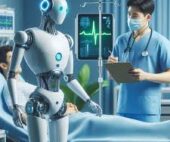Paradigm Shifts That Changed Marketing
The dynamic landscape of marketing is ever-evolving, necessitated by shifting buyer expectations and the rapid advancements in technology. Marketing, as a discipline, cannot afford to remain static. Paradigm Shifts That Changed Marketing can be classified in four buckets, if you will. Reflect on your marketing career for a moment. Did you foresee your current role when you began? Did your current job even exist several years ago? The evolution of marketing over the years has been influenced by several paradigm shifts, with three pivotal changes significantly altering the ways in which companies and customers interact. The first shift: Personalized marketing Historically, marketing aimed at reaching the largest audience with a uniform experience. Mass marketing tactics, such as TV ads, print ads, and billboards, were employed to achieve this goal. The advent of the internet brought forth the aspiration of personalized marketing. In the early 1990s, visionaries like Don Peppers and Martha Rogers foresaw a future where businesses could communicate directly with consumers on an individual basis, leveraging new media. However, technological constraints hindered this vision initially. Fast forward two decades, and technology has finally caught up, enabling businesses to deliver personalized experiences. Platforms like Netflix and Spotify recommend content based on user preferences, and e-commerce sites streamline online shopping through personalized suggestions. Today’s businesses, by understanding user behavior, can provide relevant and engaging digital experiences across various channels. Beyond the evident examples of digital personalization, marketers employ subtle strategies across websites, mobile apps, email campaigns, online chat, and digital ads, alongside in-person channels, to cater to individual preferences. This paradigm shift marks an exciting era for both marketers and consumers. The second shift: Real-time decision-making In 2008, the significance of real-time analytics in marketing was underscored by Patric Timmermans, then Director of CRM at Infor. Companies had progressed from celebrating data updates every six weeks to having constantly updated customer information. Today, real-time data is the industry standard, with the ability to monitor campaign performance instantaneously and make swift decisions to address underperforming campaigns. Real-time data processing aligns with the first paradigm shift of personalized marketing, ensuring that personalized experiences are delivered promptly. Marketers now have the capability to respond to customer needs as they arise, fostering a deeper understanding of customers in real-time. The third shift: Testing and measurement Contrast the advertising landscape of the 1960s–1970s, as depicted in Mad Men, with the present marketing ethos. In the past, marketers made decisions based on past successes, executive preferences, or gut instincts. There was no systematic way to measure results or experiment with different approaches. Today, marketing places a strong emphasis on testing and measurement for optimization. A/B testing allows marketers to determine the most effective approach by comparing different options. Unlike the bygone era, successful modern marketers are continually iterating on their strategies, driven by the belief that there is always room for improvement. In the contemporary marketing landscape, testing has evolved to complement personalized marketing. While traditional A/B testing aimed at finding the best experience for everyone, marketers now focus on individualized communication. A/B testing and experimentation persist in a personalized world, guiding marketers to identify optimal experiences for specific segments or individuals. Paradigm Shifts That Changed Marketing While marketing has undergone substantial transformations, the fundamental goal of reaching buyers where they are remains constant. Technological advancements have spurred paradigm shifts in marketing, encompassing individualized communication, real-time analytics and action, and experimentation and measurement. The evolution continues, with Marketing Cloud Personalization offering a suite of tools to create relevant, real-time marketing strategies, coupled with robust measurement and testing capabilities. Like Related Posts Salesforce OEM AppExchange Expanding its reach beyond CRM, Salesforce.com has launched a new service called AppExchange OEM Edition, aimed at non-CRM service providers. Read more The Salesforce Story In Marc Benioff’s own words How did salesforce.com grow from a start up in a rented apartment into the world’s Read more Salesforce Jigsaw Salesforce.com, a prominent figure in cloud computing, has finalized a deal to acquire Jigsaw, a wiki-style business contact database, for Read more Service Cloud with AI-Driven Intelligence Salesforce Enhances Service Cloud with AI-Driven Intelligence Engine Data science and analytics are rapidly becoming standard features in enterprise applications, Read more






